Water is a necessity, and everyone as a living being needs it. It is utilized for various purposes, such as drinking, washing, etc. Though water appears crystal clear, it consists of various chemical solutes, and based on different compounds present in the water; it is categorized as either hard water or soft water. But what exactly is hard water?
Table of Contents
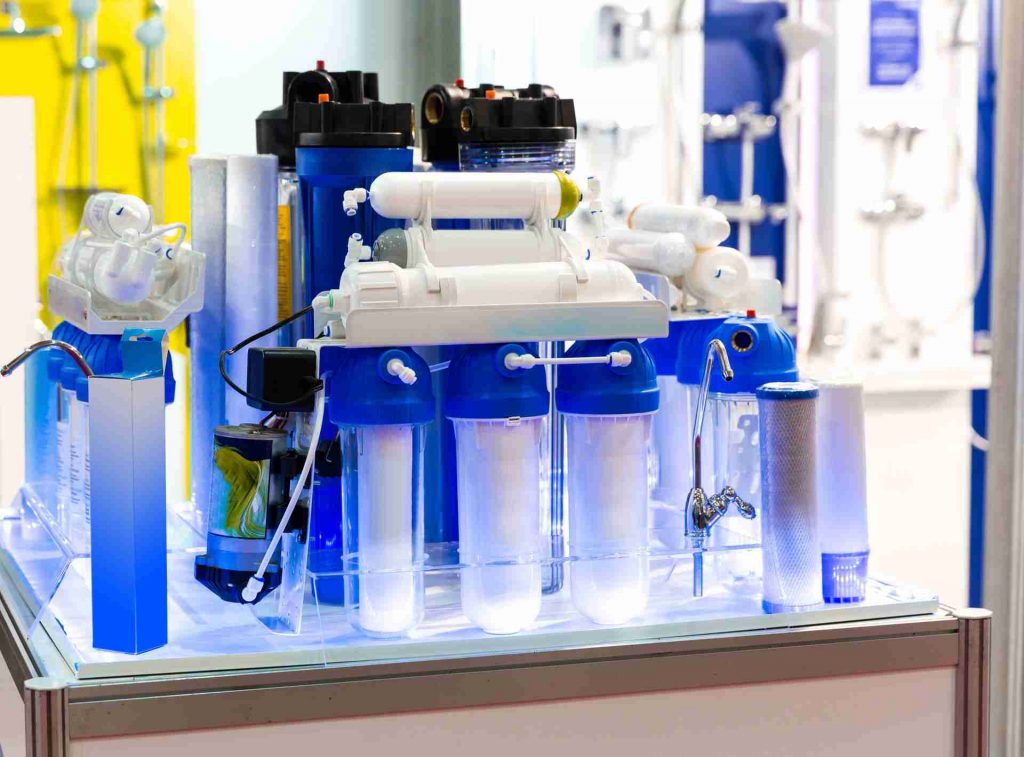
Well, to put it simply, it is a state of water that is caused by calcium and magnesium ions and is known to lead to several health disorders. Hence, you should always be looking to treat hard water if it is supplied to you. In this article, we’ll be taking a look at the 5 best water softener resins to help you exterminate hard water completely.
Editor’s Picks: Top 3 Best Water Softener Resins






Buyer’s Guide For The Best Water Softener Resins
Before buying a water softener resin, you should consider the following points:
- Before buying a water treatment device with refillable water softener resins, test the water of your locality to check its hardness and mineral content. To measure the hardness of the incoming water supply network, maintain a log book with daily hardness level and water meter readings. It is useful to enhance the resin life and maintenance of the system bought.
- Based on the daily hardness readings, determine the type of resin you need to purchase, whether anionic, cationic, or mixed exchangers. The exchangers are made of a variety of materials and crosslinkers. Try to do basic ground research about the different types of resins available and which can be suitable for your water supply system.
- Calculate the type of mesh size, which can be suitable for the flow rate of your hard water valve. Mesh size refers to the dimensions of resin beads. Finer the mesh size, smaller the beads size, which packs more tightly and offers higher capacity & working area. Try to determine the pore size of the resin to achieve the needed mesh size.
- Research on the physically harder resins is more resistant to metal fouling such as iron & manganese, and also provides higher ion exchange capacity (10% crosslinking). Even the resin should be resistant to the oxidizing effect of the chloride ions.
- Choose an appropriate tank size and soft water supply device. The tank size should be chosen so that after filling the tank with resin, there should be void space available for the water to remove hard ions efficiently.
- After considering all the above factors, buy a water softener resin with high-quality compounds, performance, and provide longevity. Since there are many options to buy in the market, pricing also comes as an essential factor to consider.
It is necessary to install appropriate water treatment with optimized and suitable water softener resin. There are hundreds of brands of resins available in the market, which becomes difficult for the user to choose the best. We have also made that task simpler by listing out some of our personal favorites and recommended products in the market with higher quality and capacity.
5 Best Water Softener Resin Reviews
1. AFW Filters SOFRES1 Water Resin
The AFW Filters SOFRES1 is top quality water softener resin that is made up of gel-based polystyrene sulfonate beads with sodium ionic form utilized for exchange sites. It is crosslinked with 8% DVB and is easy to replace in the water softener devices.
The beads are one cubic feet size, spherical and can be regenerated using ordinary salt. They can retain moisture up to 45-50%. They are chemically stable in a wide range of pH and alkalinity. They remove the magnesium and calcium ions from hard water by replacing them with sodium ions. This product is widely used in fresh and industrial water softening types of equipment. The major perk of using this water resin is that the manufacturer provides one year limited warranty and the expected life of the product is 12-15 years.
- High capacity resin, brand varies
- 1 cu. ft. bag
PROS:
CONS:
2. Aquatrol Water Softener Resin
If superior hydraulic characteristics is what you are looking for, the Aquatrol Water Softener Resin might just be the product for you. It is a gel-based strong acid cationic exchanger made up of polystyrene sulfonate with 10% cross-linking and exchangeable sodium ions.
The product is physically hard and chemically stable in a wide range of pH & alkalinity. It also has thermo-tolerant properties and can withstand temperatures up to 120°C. It excellent kinetic behavior and softens hard water into pure, high-quality water. As for certifications, NFC certified resin in compliance with USDA guidelines.
- Works for any residential 32,000 Grain Water Softener
- In stock and ready to ship
PROS:
CONS:
3. Purolite C100E Water Softener Resin
Durability goes a long way for water softener resins. You should look for a product that lasts long and also requires minimal maintenance. The Purolite C100E Water Softener Resin is a prime example of one such product. It has 10% cross-linked polystyrene cation exchange beads supplied with sodium ions. Hence, it is ideal for hard water that is used at our homes.
It provides domestic/industrial/food grade water softening and are commercially used by many industries and companies in their water pipelines. The ions in the resin are clear, spherical, and one cubic feet sized beads with a size ranging from 300-1200µm. They exceed EEC requirements and comply with the USDA human consumption guidelines.
- Advantages - Efficient regeneration - Good kinetic performance - Low extractables
PROS:
CONS:
4. Oceanic Water Systems Water Softening Resin
Though it is always advised to purchase a high-quality product, budget constraints are something you just can’t ignore at times. If you are looking for a cost-effective water softening resin that also provides A grade features, Oceanic Water Systems’ Water Softening Resin should be your next investment.
It has a strong 10% cross-linked acid cation exchanger with high exchange capacity, which contains a larger surface area to work with the hard water. This allows it to have good selectivity to the hard ions and are thermally stable. It works with hard water treated with chlorine while also not loosening its crosslinking. This happens due to the oxidation done by chloride ions in the solution.
The micro-beads in the system range from 0.5-1mm in diameter, and appear white or yellowish. They act as an add-on resin bed or sometimes as a media filter to remove solid sludge as they are porous. It provides excellent kinetic behavior and food-grade water for consumption.
- Higher Grade 10% Cross Link Cation Resin. Water Softening - Strong Acid Cation Exchange Resin
- An ion-exchange resin or ion-exchange polymer is a resin or polymer that acts as a medium for ion exchange. It is an insoluble matrix (or support structure) normally in the form of small (0.5–1 mm diameter) microbeads, usually white or yellowish, fabricated from an organic polymer substrate. The beads are typically porous, providing a large surface area on and inside them. The trapping of ions occurs along with the accompanying release of other ions, and thus the process is called ion exchange.
PROS:
CONS:
5. LiquaGen Water Softening Ion Exchange Resin
LiquaGen’s Water Softening Ion Exchage Resin is a gel-based strong acid cation exchange resin. It is made up of 10% cross-linked polymerized styrene sulfonate with sodium ions utilized to replace the hard ions from water. It provides impressive results and also has a long life expectancy. They treat hard water according to the food-grade quality and safety guidelines.
The resultant soft water can be used for a variety of purposes such as drinking, cooking, etc. The 1.5 cubic feet sized beads are widely used in residential as well as commercial purposes. It provides a free resin loading funnel along with the manufactured unit for a more comfortable replacement in the water softener. Moreover, it can remove and tolerate higher concentrations of iron from the water.
- Tired of paying hundreds of dollars to high mark up brands to replace your resin? Start saving with LiquaGen's DIY resin. World class lab tested quality resin ensuring great water. High End product without the High End price!
- Includes a FREE resin loading funnel for super easy/convenient installation.
PROS:
CONS:
What Is Hard Water?
Hardness of the water is dependent on varying concentrations of different cationic ions along with their sulfates, carbonates, or bicarbonates. The cationic ions present in hard water are always of a higher order than soft water and has the ability to form complex compounds. Soft water, in contrast, contains solutes that have high solubility and contains mostly Na+ or K+ with valency one. Hardness of water is a huge problem faced by people in different industrial streamlines, where they often see deposits of white-colored precipitates resulting in the failure of different types of equipment.
It is caused mainly by calcium or magnesium ions accumulated from sedimentary rocks, seepage, and runoff from the soil. But these ions are essential co-factors needed for regulating the metabolic activity of the human body. How can they be harmful?
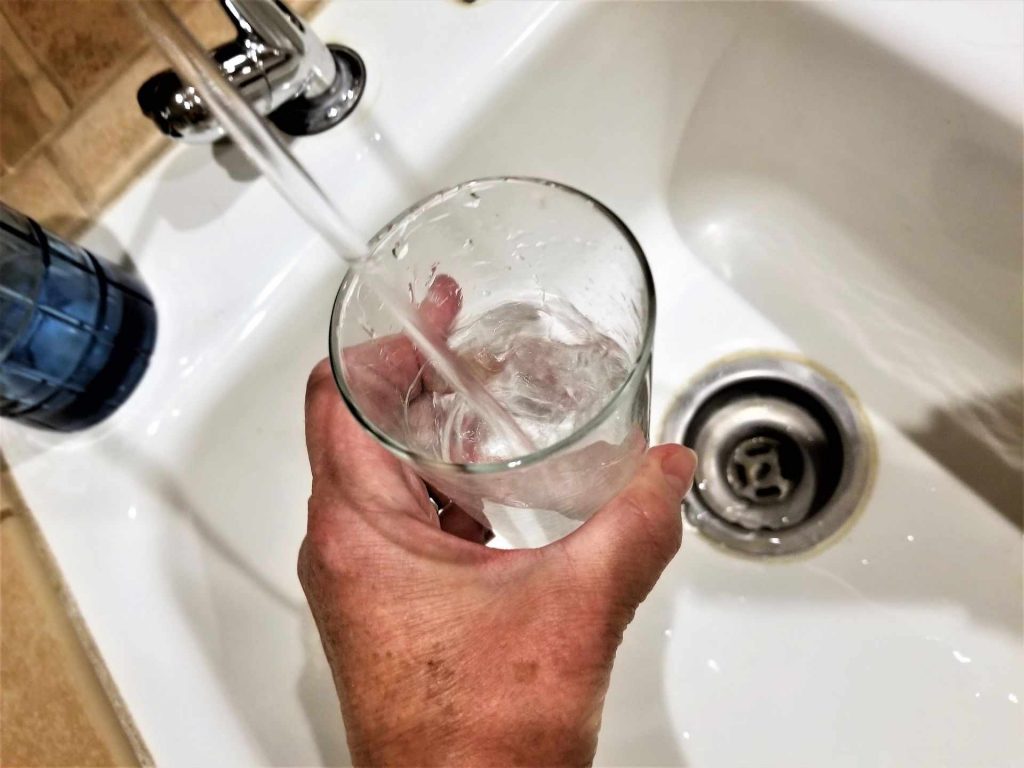
But when the concentration of these ions increases more than 60mg/L, it creates severe health disorders leading to renal insufficiency for filtration. Hard water also remains an unsolved problem for various industries, which hinder the functioning of different purposes of water, such as washing with soap, scale formation, and fouling. The hard water, along with calcium and magnesium ions, also contains ferrous, manganese, and other metallic ions, which overtime sediment and form cakes. Therefore, it remains a big challenge to remove these ions from the water to make it soft water.
Several technologies are blooming to reduce the hardness of the water, such as lime softening, water softener resins, distillation, nano-filtration, and reverse osmosis. Compared to nano-filtration, distillation and reverse osmosis, lime softening, and water softener resins are the readily available technologies. They are not expensive as well as do not require skills to perform the task. Water softener resins, when compared to lime softening, can remove both temporary and permanent hardness. It is sustainable in terms of longer lifetime & capacity.
What Is A Water Softener Resin?
Water softener resins are polymers made up of a resin and a hardener. Most commonly, we use polystyrene for the resin, and the hardener is divinyl benzene (DVB). DVB in scientific terms is called the cross-linker, which cross-links individual molecules of styrene to form a compact and more durable structure such as beads with specific pore size and width. The most favorable interlinking percent ranges from 8-10% which creates a pore size ranging from 0.3nm-1.2nm. It is just analogous to the bird nest, where each twig is interlinked at certain angles glued together to give the perfect shape.
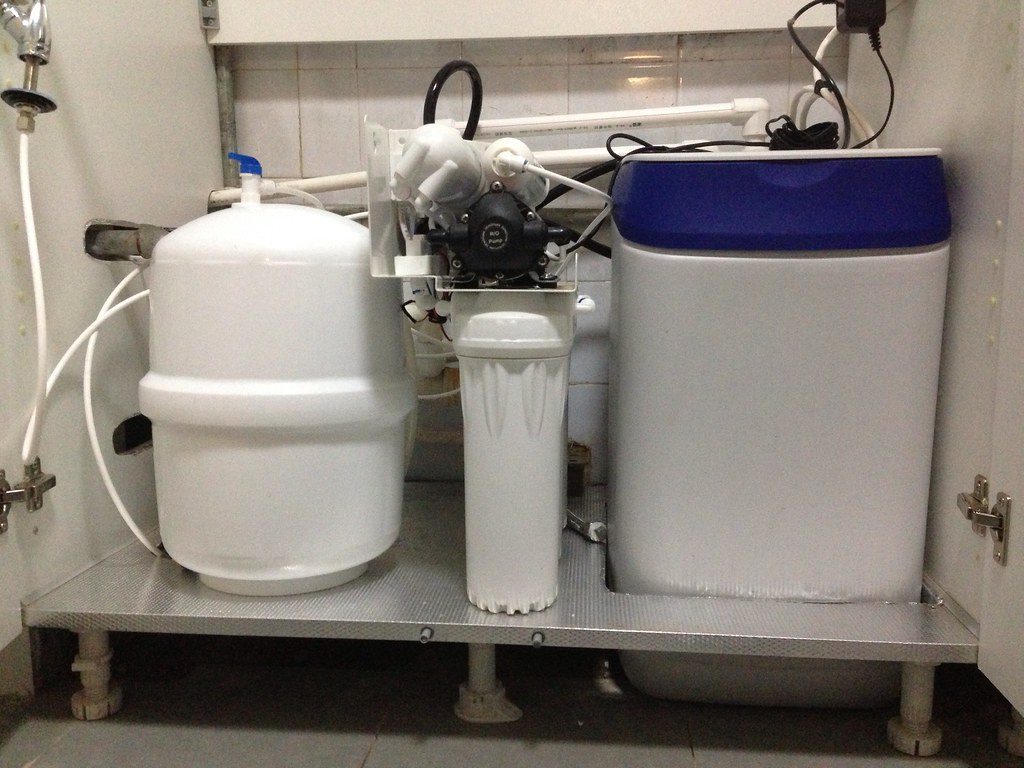
Water softeners resin are used to remove the hard ions from water by directly passing the water through a bed arranged with water softener resin. The exchange of ions takes place to make soft water. The whole process is defined as water softening. The capacity of the resin to remove ions from the water depends upon the percent of the cross-linking of the individual styrene molecules. With an increase in the cross-linking, the ability of the resin to remove ions increases as more individual resin molecules are compactly arranged to work with higher capacity. It indirectly relates to the rise in the surface area by smaller sized beads due to high percent cross-linking.
Why Do You Need A Water Softener Resin?
Hard water in your house can be identified by feeling a film around the washed hands, a white coating on glassware & utensils, and mineral deposits in the pipelines. Even though there are no severe risks regarding hard water, it reduces the life expectancy of any system. Similarly, usage of hard water in industries over time results in maintenance problems of the hardware utilized. Therefore, the installation of units with water softener resins must generate soft water for various purposes.
Also, hard water leads to excessive soap consumption, change in the alkalinity of the water depending on the concentration of ions, and results in metal carbonates scale deposition in the equipment & heated water exchangers. With time, the scale deposition leads to the corrosion of metal surfaces and steal. Thus, most industries and water network suppliers often soften the water as it causes minimal scaling and more extended the lifetime of a system.
How Does A Water Softener Resin Work?
There are two different types of hardness in the water. Temporary hardness is created by compounds such as bicarbonates of calcium and magnesium. It can be easily removed by boiling water or by the addition of lime (calcium hydroxide), which precipitates out the compounds. Permanent hardness is caused by sulfates, nitrates, or chlorides of calcium and magnesium. They increase their solubility with an increase in the temperature of the water. Thus it is hard to remove those using simple boiling or lime. It requires specific techniques such as exchange ions or filtration to remove those compounds from the water.
These resins are ion exchange media used in industries and other places for the softening of hard water. The basic principle behind the ion exchange media is the double displacement chemical reaction taking into consideration the valence numbers of each ion. Let’s take a look at how the anion exchangers facilitate the exchange of cations during the process.
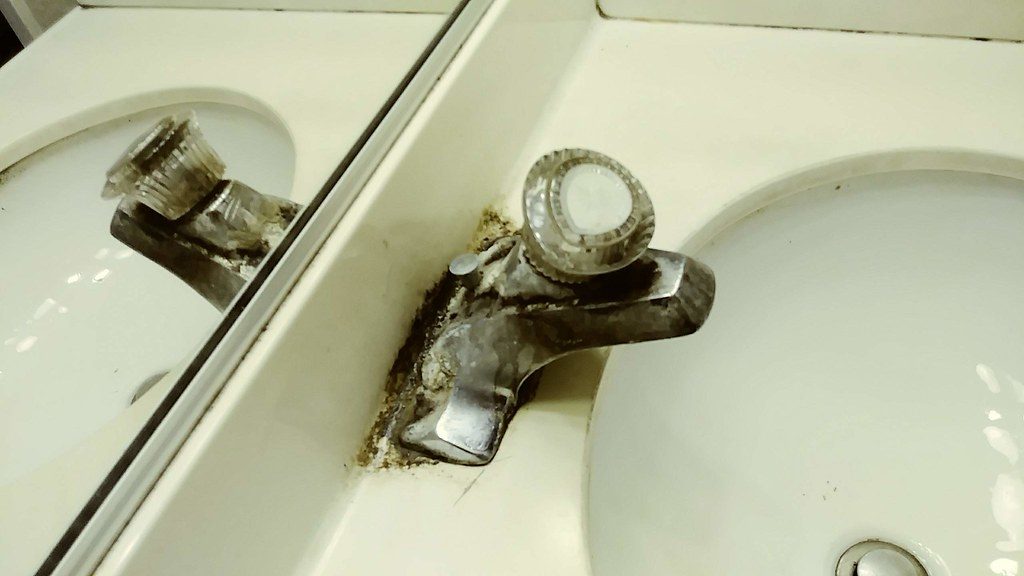
The production and manufacturing of the polystyrene beads are done in such a way that they will contain a negatively charged site in between each interlinking individual styrene molecules during crosslinking with DVB. These negatively charged sites are enriched with cations with valence number one. Mostly enriching cations are sodium or potassium, which are replaced for the higher valence ions in hard water. The sodium and potassium ion concentrations in the water do not lead to the production of hardness and scaling in water. It is because of their small size and ability to solubilize easily. But it increases the salinity of the water, thus it is not suitable for drinking.
Packing of resin is done in half of the tank, in order to allow sufficient time for the reaction to complete. As the hard water is flown through the tank filled with resin, the weakly singly bonded sodium ions are displaced by the hard ions such as calcium, magnesium, and iron. After displacement, the calcium or magnesium binds to two negatively charged sites, stabilizing the bond.
If iron is removed from the water, it preserves the reaction by binding to three negatively charged sites. Thus the cations causing the hardness of water are removed from the water. After removal of the hard ions, there is a temporal deposition of these ions on the beads where the beads exhaust its capacity in terms of exchange sites. Thus the beads must be regenerated using brine solution after exhaustion. The brine solution is made up of water and salt (sodium chloride). The deposited ions on the bead are displaced by sodium because of its high concentration in the brine solution, and the resulting sludge is flushed down. The life cycle of the resin repeats for the removal of ions after regeneration.
Nowadays, most of the hard water, whether it is drinking or other purpose water, is chlorinated. Chlorine acts as a disinfectant that does not allow bacterial and fungal species to contaminate the water. Thus in most industries and houses, anionic exchangers are installed to remove hard cationic ions.
Failure Mechanisms Related To Water Softener Resins
Throughout its life cycle, resin exhausts and then is again regenerated. It is under constant attack from the flow of hard water or a brine solution. Listed are some of the mechanisms which can fail the working principle of resin.
- The hydraulic shock is experienced by a sudden increase in the flow rate pressure of incoming hard water on resin beads. It results in slamming of beads along the walls of the tank and eventual cracking of the beads.
- Osmotic shock: The resin beads swell and contract at different periods to regenerate their life cycle. The extensive contractions and swelling leads to a break or crack in the beads over time.
- Oxidation or chloride attack: Mostly, the water is chlorinated for disinfection. But the chloride ions in the water is an excellent oxidizer which loosens the crosslink in between individual styrene molecules and results in the inefficient exchange media for future use.
- Resin attrition: The cracked or broken beads usually lie around the bed in the tank, filling the resin bed’s void volume. It eventually, by time, results in the caking up and choking the water supply with a failed exchange medium.
- Metal fouling: Metal fouling is one of the major problems faced by the beads. The hard water contains ions of other calcium and magnesium. The ferrous and other metallic ions are higher up in their valencies, which stabilizes the bond in the beads and cannot be easily displaced during the regeneration of the resin beads. It results in the scaling or deposition of these metallic ions on the surface of the beads. As the incoming hard water also contains oxygen, in the presence of oxygen, these metallic ions react and form their respective oxides. Therefore the flushed down soft water will contain elevated levels of these metal oxides, which sometimes might be quite lethal and harmful. It also forms a slimy layer over the beads’ surface, which plugs in the resin’s exchange sites.
By minimizing the pressure drop of the incoming hard water valves, these mechanisms can be avoided with a function of flow rate and temperature. The slower flow rate will not crack the beads, and the lower temperature prevents osmotic shock effects. The resin life also depends upon the concentration of chloride ions present in the water. The resin can be functional and can provide an expected lifetime if the chloride ion ranges from 0.5-2ppm in the hard water. For the hard water with higher metallic concentration, specifically designed resin, should be utilized for effective removal.
Frequently Asked Questions (FAQs)
Q. Will a water softener make healthy drinking water?
Water softener resins are mostly used for the removal of hard ions from the water. When the water gets softened, it has increased concentrations of sodium or potassium content in it. It makes it difficult for consuming, as increased salt content might affect various cardiac-related health disorders. To make the water fit for drinking, please use reverse osmosis or nano-filtration technology in the water treatment device, which provides water fit for consumption.
Q. Why does soft water appear slimy and slick while washing utensils or clothes?
Hard water consumes more detergents or soap, as the calcium and magnesium actively react with the detergent molecules and form a hard scum. To see the effective use of detergents, one should add an excessive amount of detergent. Whereas in soft water, there is an excess concentration of sodium and potassium. It does not react with the soap or detergent and prevent the usage of excess quantities from cleaning and washing. This ability of the soft water makes it appear slimy.
Q. Why are there ads which promote no salt requirement resins? How do they work?
These advertisements, which promote no salt requirements, are a misnomer to the audience. All the resins undergo the life cycle of exhaustion and regeneration, which require brine or other salt solutions to regenerate the exhausted resin beads to activate the exchange sites in the beads.
Only companies that mention their resin technology are accompanied by template-assisted crystallization (TAC), which does not require salt to regenerate the resins. It is because the resin promotes the crystallization of the calcium or magnesium bound to the resin. Thus the hard ions lose their ability to scale and get washed down the drain.
Q. Can we potassium chloride salt for the regeneration of the resin beads?
Yes, the users can use potassium chloride salt solution instead of brine for the regeneration of the resin beads. The brine and potassium chloride solution contains free ions of sodium and potassium, respectively. Both sodium and potassium have a valency of one and pretty much exhibit similar chemical properties. They don’t react with the detergents and have minimum deposition or scaling.
Q. When do the resins in the tank should be changed?
The resins in the tank should be regularly changed and maintained. The life expectancy of the resin, as reported from the manufacturers, is 20+ years. But the longevity of the resin depends upon the type of hard water. The hard water determines the durability of the resin.
Q. How often do I salt the resin tank?
The regularity of the salting of the resin tank depends on the pore size or mesh size created due to the resin’s packing. The resins salting also depend upon the concentration of the metallic ions and chloride content present in the hard water. Therefore, the exhaustion is dependent on the hard water’s properties, which can be checked by the local water quality treatment services to determine an approximate exhaustion period of the resin.
Q. I have a water softener, but still, there are odor problems. Why?
Water softener resins only contribute to the hardness of the water. It does not enhance or remove the odor and taste of the water. The scent in the water could have been caused due to the presence of hydrogen sulfide (rotten egg smell) or bleach due to chlorination. These odor problems can be solved by fixing the activated carbon chamber in the water treatment device to remove the odor. Sometimes the self-sacrificing heating rods are also causative of smell in the water.
Q. I have a working water softener, but still have iron staining in clothes. Why?
Water softener resins used in the systems might not be tolerable to iron or cannot selectively remove iron from the incoming hard water. There are also chances that the ferrous molecules were not removed during regeneration of the beads using a salt solution, and occupies the exchange sites of the resin molecules. The plugin of the exchanges due to iron can result in lesser working space in the beads and might lead to elevated iron levels in the water resulting in iron staining. To minimize the iron staining of clothes, try replacing the resin beads, which can work with higher concentrations of iron.
A Final Word
The water softener resin options can be changed according to the varied requirements in the locality. It contains extensive options for different mineral concentrations in the hard water. The standardized water softener resin utilized for the water softening is an anionic exchanger that replaces sodium cations in the water.
On an ending note, we personally recommend you to buy:
- High capacity resin, brand varies
- 1 cu. ft. bag
Impressive capacity, easy to install, versatile, and FDA approved, this water softener outclasses most of the competition. Ideal for all kinds of workplaces be it households or commercial areas.

I like you use water every day in everything I do. I love to find better ways to filter water I drink, soften hard water and find amazing water bottles for when I’m on the go.
I want to share what I find with you and review the options you might be looking for.
Author Profile – Tony Cosentino
Last update on 2024-03-17 / Affiliate links / Images from Amazon Product Advertising API. WaterFilterly is user-supported. We might receive a commission on any purchase you make through clicking links on this page.

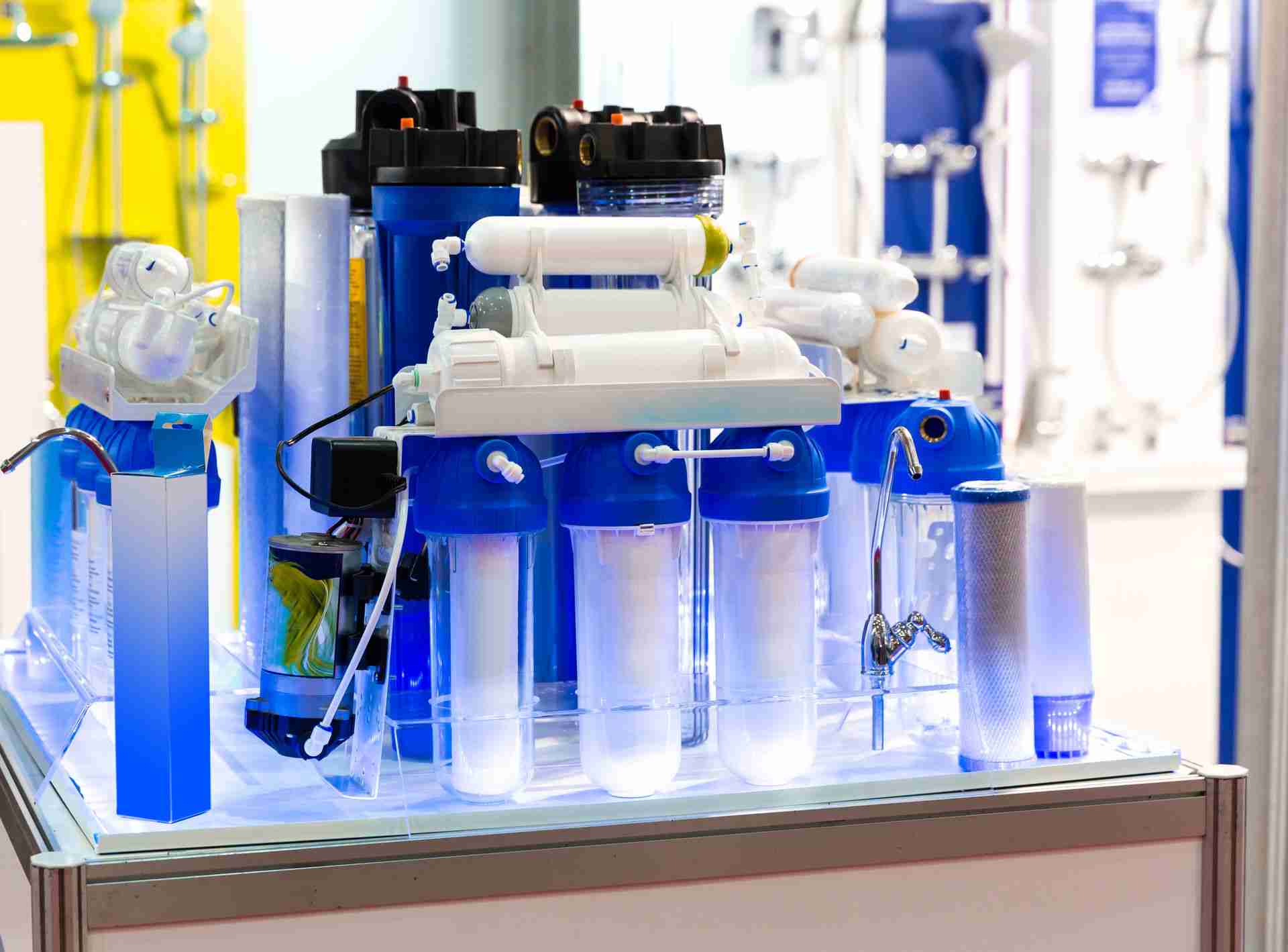


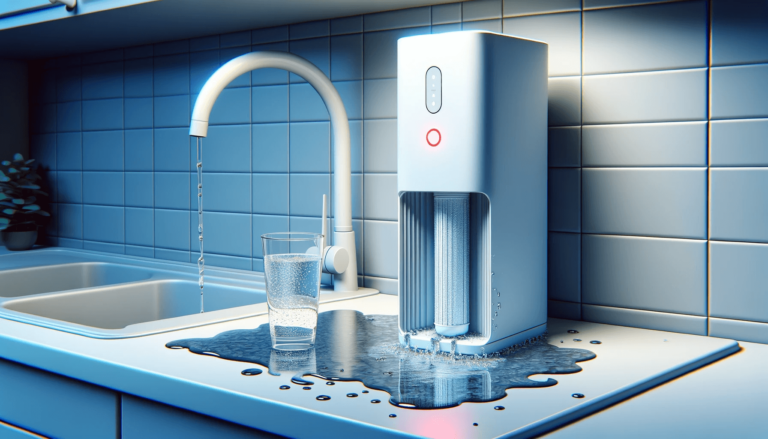
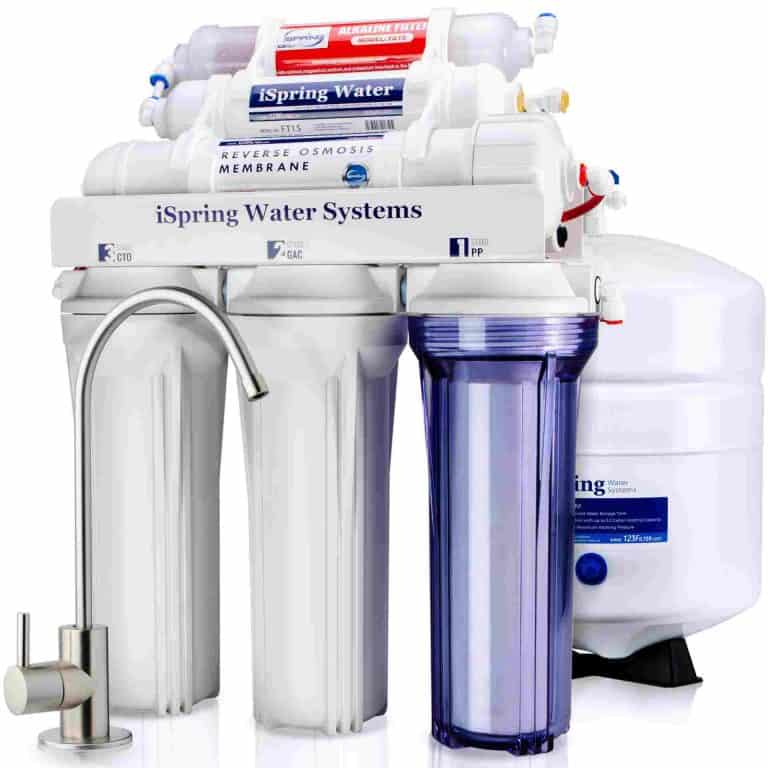
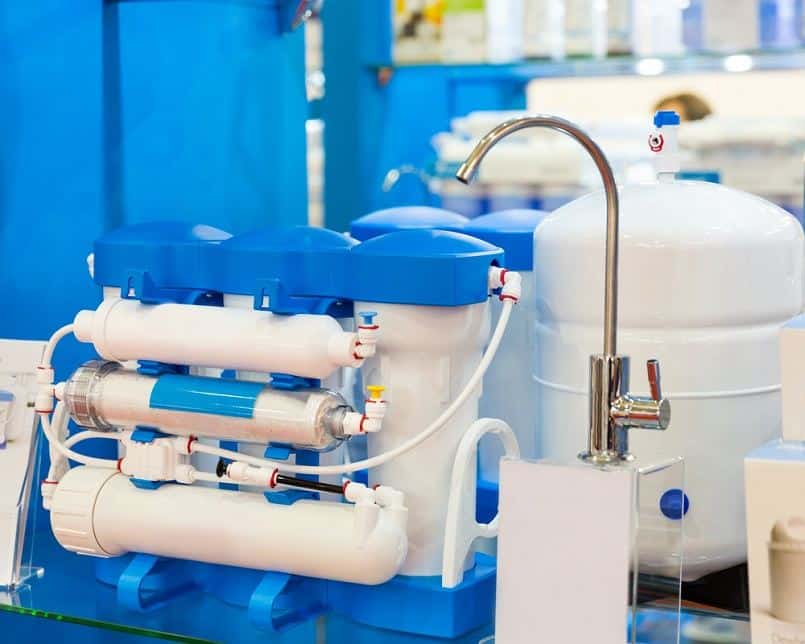

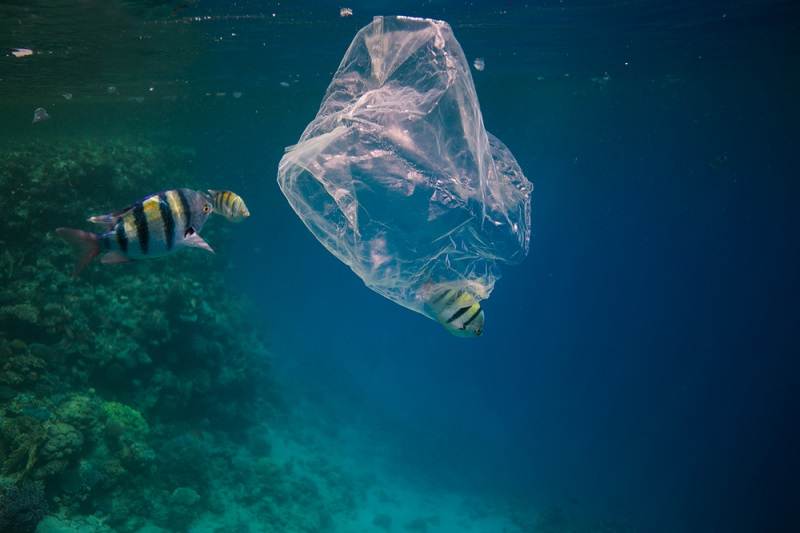
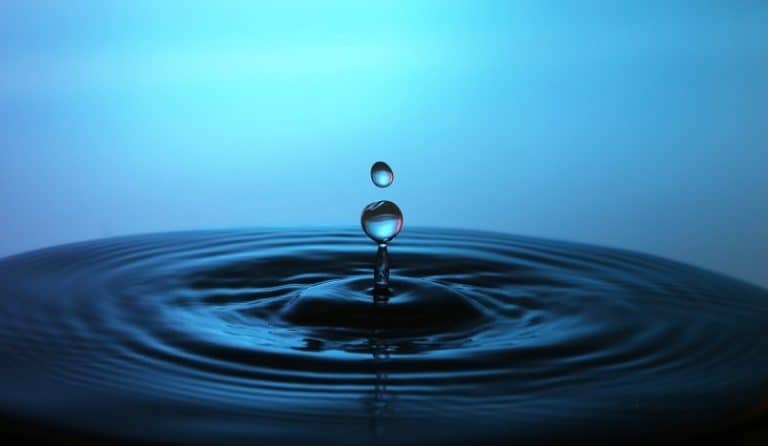
I completely agree with your statement that water is a necessity for all living beings. It’s a fundamental fact that often gets overlooked. It’s great to see you highlighting the importance of water in such a concise and straightforward manner. Keep up the good work!
Do you think access to clean water should be considered a basic human right? Why or why not?
Did you know that the human body is made up of about 60% water?